#climatology
Text
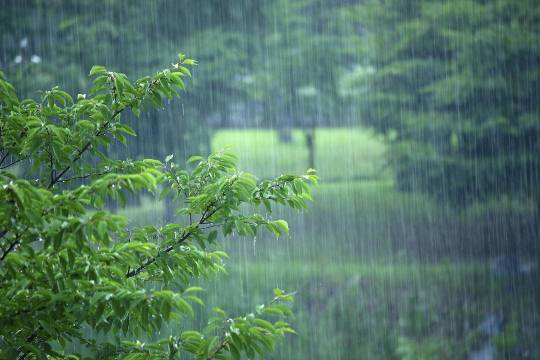

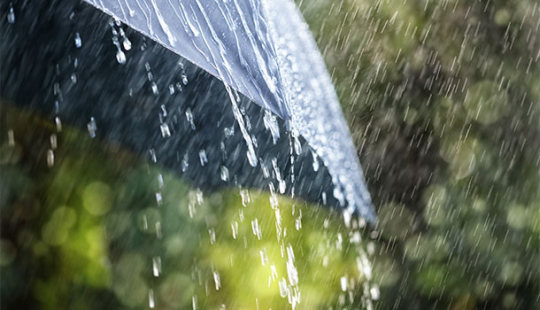

Sean bienvenidos japonistasarqueologicos a una nueva entrega del país del sol naciente en la que os explicaré que es el tsuyu, una vez dicho esto pónganse cómodos que empezamos.
-
¿Qué es el tsuyu? ¿En qué consiste? El tsuyu, en hiragana つゆ y en kanji corresponde a 梅雨. Esto corresponde a los meses de verano en Japón: Mayo a julio seguramente todos habréis visto la película de Tenki no ko, del director Makoto shinkai, en el que se puede apreciar muy bien este fenómeno por poner un ejemplo. En estos dos meses caen grandes trombas de agua a raudales que para algunos le resultará placentero y otros una tortura¿Qué es para vosotros?, ¿os gustan los periodos de lluvia?
-
Espero que os haya gustado y nos vemos en próximas publicaciones que pasen una linda semana.
-
日本の考古学者諸君、ようこそ、日出ずる国の新連載へ。ツユとは何かを説明しよう。
-
ツユとは何か?つゆとは、ひらがなでは「つゆ」、漢字では「梅雨」にあたる。皆さんは新海誠監督の映画『天 気の子』をご覧になったことがあるだろう。この2ヶ月間、滔々と降り注ぐ大雨は、ある人にとっては喜びであり、ある人にとっては拷問である。 あなたは雨の時期が好きですか?
-
それでは、また次の記事でお会いしましょう。
-
Welcome, Japanese archaeologists, to a new installment of the land of the rising sun in which I will explain to you what the tsuyu is, having said that, make yourselves comfortable and let's get started.
-
What is tsuyu and what does it consist of? Tsuyu, in hiragana つゆ and in kanji it would correspond to 梅雨. This corresponds to the summer months in Japan: May to July, you have probably all seen the film Tenki no ko, by director Makoto Shinkai, in which this phenomenon can be seen very well, to give an example. In these two months, huge downpours of water fall in torrents, which for some people will be a pleasure and for others a torture. What is it like for you, do you like periods of rain?
-
I hope you liked it and see you in the next posts have a nice week.
#日本#気候#気候学#雨#自然#天気#気象#夏雨#海産物#果物#-#japan#climate#climatology#tsuyu#nature#weather#meteorology#summerrain#rain#seafood#fruits#歴史#history#unesco#ユネスコ#geography
58 notes
·
View notes
Text
Why has my crush been on my mind lately!!!
Like… I literally sit and start randomly blushing 😫😫
This can’t be happening now! I need to start blushing at the thought of coriolis force and air pressure cells!? NOT him!😣

6 notes
·
View notes
Text
I wish there was a thing where you could pay a meteorologist to look at your fictional world's map and tell you what kinda climate and weather you'd get in different parts of the world
#fingerguns#climatology#meteorology#tagging those on the off chance a meteorologist might be trawling the tags and be willing to take me up on this lol#i just wanna know if my fictional world's weather is right...
6 notes
·
View notes
Text
Tornado Quest Top Science Links For April 13 - 20, 2024 #science #weather #climate #climatechange #severeweather #tornado #drought
Greetings everyone. Thanks so much for stopping by. Severe weather, including tornadoes, has taken place, but it’s been relatively quiet this spring. Having said that, there are changes on the horizon in terms of severe weather potential. It’s that time of year to buckle down on how to prepare for all severe weather hazards. Our overview of severe weather preparedness will stay with a review of…
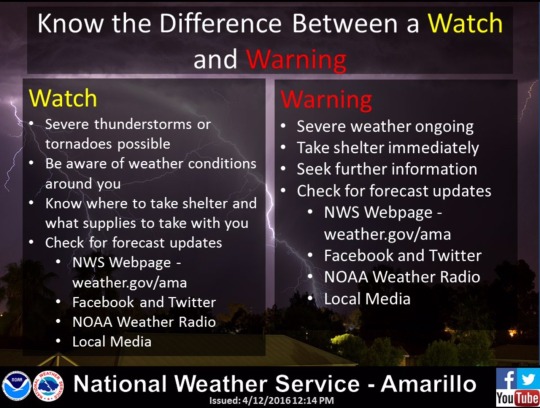
View On WordPress
#climate#climate change#climatology#cloud seeding#critical thinking#drought#drought monitor#dubai#earth#earth history#environment#fire#flood#flooding#floods#meteorology#NOAA#noaa weather radio#renewable energy#renewables#science#science research#scientific method#tornado#tornado safety#tornado sheltering guidelines#us drought monitor#weather#weather radio#wildlife
3 notes
·
View notes
Text
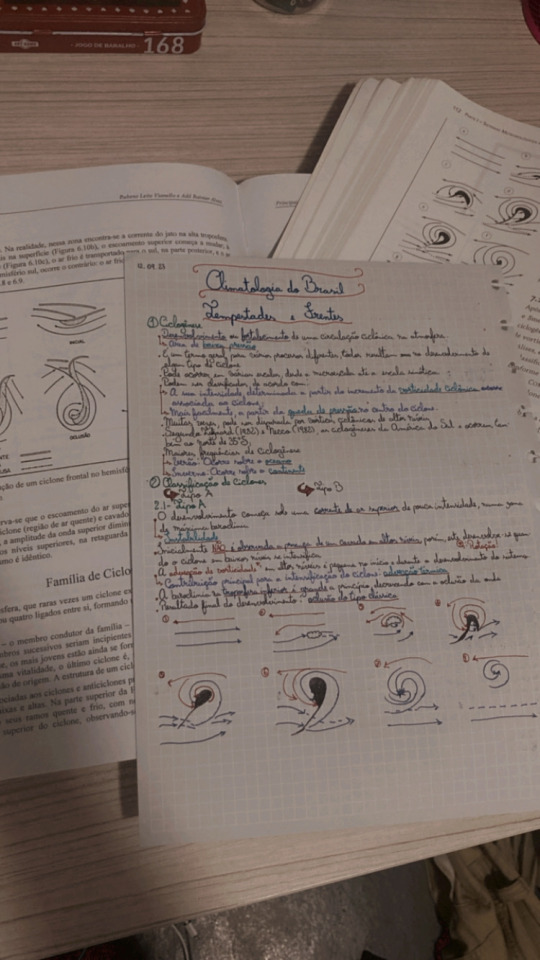

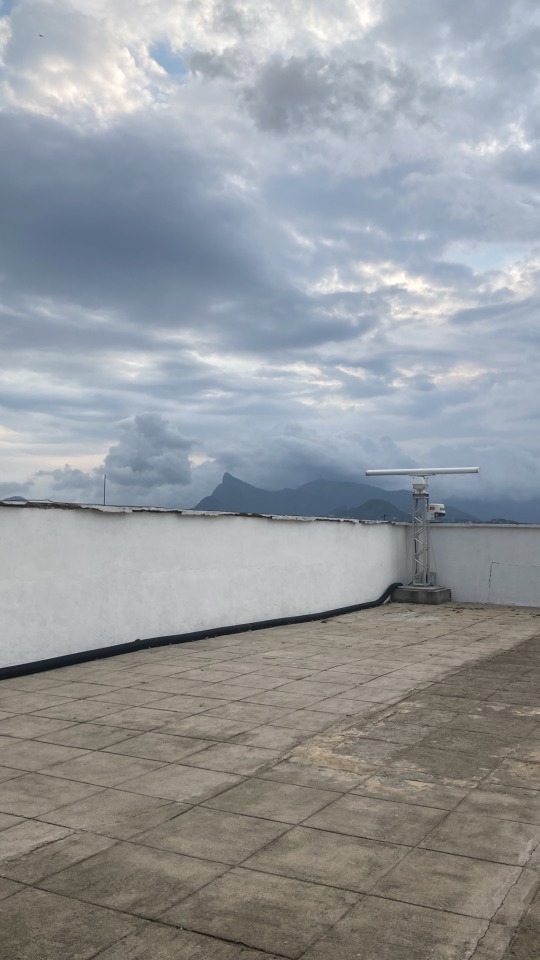

Resume of the first “serious” college week ✨
#dark academia#light academia#chaotic academia#romantic academia#adhd academia#dark academia aesthetic#bookblr#books#studyblr brazil#geogblr#climatology#study
11 notes
·
View notes
Text
Mister Fantastic: I think I've found a way to stop Galactus
GOP Senator: Hold on a second, how do we even know that Earth being eaten is a bad thing?
#marvel#fantastic four#mister fantastic#future foundation#reed richards#Climate change#global warming#climate denial#climate deniers#us politics#joe manchin#Republicans#Gop#galactus#Galan#environmentalist#Environmentalism#ecology#Climatology#environmental justice#sea level rise#green energy#renewable energy#solar power#wind power#hydroelectric#nuclear power#paris climate agreement#climate emergency#climate change
39 notes
·
View notes
Text
I need a climatology book 😭
#for fanfic research instead of actual studying but hush#though i need it for studying as well but it's doubtful I'm gonna focus on the study part#search engines can be so unhelpful in finding the nost fitting word#climatology
2 notes
·
View notes
Text
youtube
Why misinformation about wildfires is spreading and how to combat it, June 17, 2023
As unprecedented wildfires continue to spread across parts of Canada, so does misinformation about them. Whatever the catalyst for any particular wildfire, the science clearly shows that climate change is making wildfire events more frequent and extreme, yet some media outlets and individuals are denying this reality for ideological and financial reasons, Michael Mann, director of Penn Center for Science, Sustainability and the Media, told CBC News.
CBC News
@allthecanadianpolitics
#misinformation#disinformation#climate change#wildfire#environment#climate crisis#climate emergency#Canada#USA#Australia#Penn Center for Science Sustainability and the Media#Michael Mann#media#corporations#science#climatology#education#drought#environmentalism#CBC#news#Youtube
2 notes
·
View notes
Text
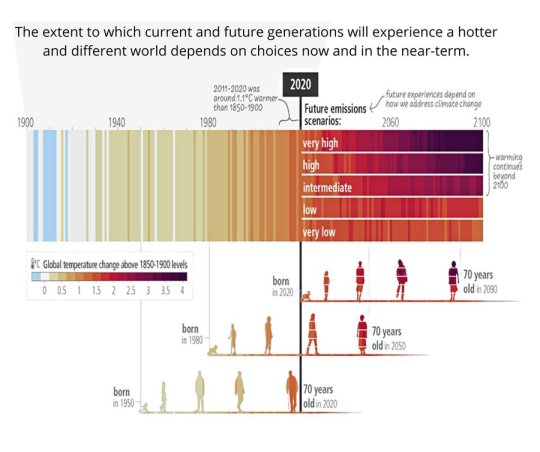
This World Meteolorogical Day 2023 considers our choices' impact on the future of weather, climate, and water across generations. Our responsibility is to create a better tomorrow for future generations. The 2023 IPCC Climate Change Synthesis Report explains why.
3 notes
·
View notes
Photo

Sunshine duration in Europe (in hours per year) #gis #climatology #topography #analytics #mapdesign #geography #themamaps #energyhealing #renewableenergy♻️ #politics #future #sunshine #worldmaps https://www.instagram.com/p/CeOOT78IfLx/?igshid=NGJjMDIxMWI=
#gis#climatology#topography#analytics#mapdesign#geography#themamaps#energyhealing#renewableenergy♻️#politics#future#sunshine#worldmaps
18 notes
·
View notes
Text
Scientists have known for centuries that the moon alters Earth’s ecosystems through gravity. As it spins around our planet, warping space-time, the moon contributes to a complex contortion of the oceans, producing twin bulges we call the tides. In turn, the daily marriage and separation of land and sea transforms the topography of numerous species’ homes and the access they have to food, shelter, and each other.
The moon also stabilizes Earth’s climate. Earth does not have perfect posture; it is tilted along its polar axis, circling the sun at an angle of about 23 degrees. The moon acts as an anchor, preventing the Earth from varying its axial tilt by more than a degree or two. Without the moon, our planet would likely wobble about like a dreidel, tilting a full 10 degrees every 10,000 years, and possibly oscillating the global climate between ice ages and hellish heat the likes of which no species has ever endured.
What is becoming increasingly clear, however, is that the moon also influences life in a more surprising and subtle way: with its light. Most organisms possess an array of genetically encoded biological clocks that coordinate internal physiology and anticipate rhythmic changes in the environment. These clocks are wound by various environmental cues known as zeitgebers (time givers), such as light and temperature. Sunlight is the best-studied zeitgeber, but it turns out that for many aquatic creatures, moonlight is just as crucial. In the past few years, scientists have rekindled a long-neglected curiosity about the moon’s power to manipulate life, reviving studies on biology’s secret moon clocks.
— The Lunar Sea
#ferris jabr#the lunar sea#science#biology#marine biology#human biology#animals#animal behaviour#genetics#astronomy#ecology#meteorology#climatology#earth#sun#moon#light#tides#zeitgebers#circadian rhythm
5 notes
·
View notes
Text
Tornado Quest Top Science Links For October 28 - November 4, 2023 #science #weather #climate #hurricane #health
Greetings everyone. Thanks for stopping by. With a few weeks left in the Atlantic and Pacific hurricane season I will continue with hurricane preparedness information that you’ll find helpful. There are other interesting reads this week, so let’s get started.
There’s a joke in here somewhere. “China’s spy-hunting campaign has a new target: ‘Illegal’ weather stations.”
In our warming planet,…

View On WordPress
#china#climate#climate change#climate crisis#climatology#disasters#drought#drought monitor#earth science education#education#emergency kit#environment#health#hurricane#hurricane preparedness#hurricane safety#meteorology#natural disasters#ocean warming#public health#science#science education#us drought monitor#weather
7 notes
·
View notes
Text
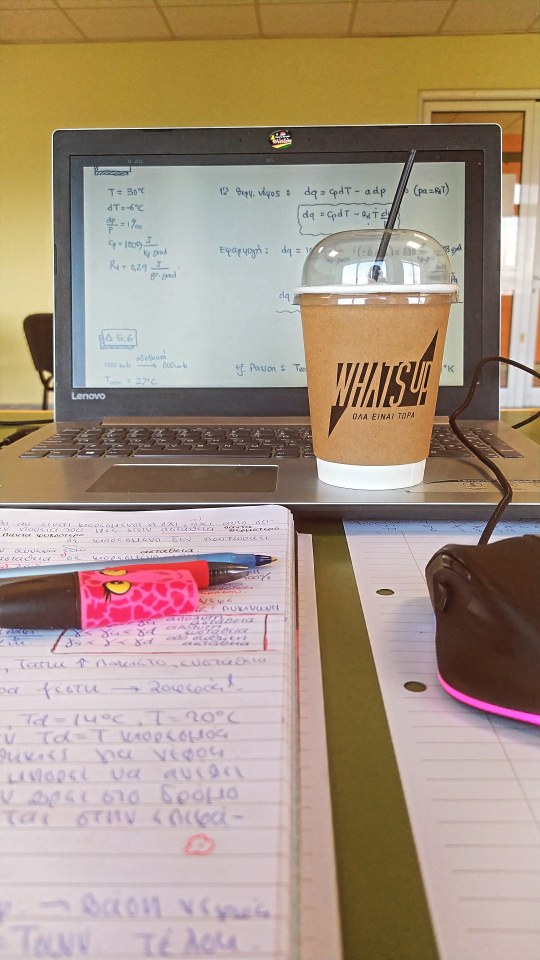
Feed your head.
#studyblr#physics#university#physblr#postgraduate#study notes#girls in stem#physics notes#studying#study inspiration#cappuccino#coffee#friday#meteorology#environmental science#environmental#climatology#Spotify
3 notes
·
View notes
Text
It’s interesting to me the connection between:
-anthropogenic (human-caused) climate change
-ecological grief (aka climate grief or eco-grief)
-eco-anxiety
-the future amount of people in STEM
-and the happiness of those who are in STEM.
Some definitions so everyone can understand:
Anthropogenic Climate Change: Changes to the Earth’s climate and ecosystems which are caused by human activity, both directly and indirectly.
Ecological Grief: “The grief felt in relation to experienced or anticipated ecological losses, including the loss of species, ecosystems, and meaningful landscapes due to acute or chronic environmental change.”
Eco-Anxiety: Extreme worry about current and future harm to the environment caused by human activity and climate change.
Here’s the thing: You generally cannot go into the sciences right now without hearing about climate change every day. Here’s what I saw/experienced in my first year of College.
Generally in university, in General Biology 1, you learn about how changes in temperature and acidity can cause vital proteins to stop working, and the potential ecological repercussions of this are usually discussed at least somewhat. In General Biology 2 there is usually an ecology unit, which goes into how we study ecosystems, biomes, communities, etc. the different kinds of each, and broadly goes over how humans are affecting them.
In my Intro to Geology course it was talked about a bit, with discussions of where and how we get coal, oil, and gas. We also spent some days watching a particular documentary series called “Earth: The Power of the Planet” (presented by Iain Stewart) and that brought up a lot of important things about climate change.
In both my Geography courses we learned/heard about climate change pretty much every day, and that’s not a huge surprise as one of them was about meteorology and climatology, so it’s pretty fundamental to the field.
But even if you’re not taking these kinds of courses where it is brought up regularly, there are posters and flyers posted all over campuses, depending on the school you might also get notices relating to climate change in your email, there was a slide show that played on a small tv outside the Geology & Geography Department, which is right in front of the stairs to that floor, that included this image.
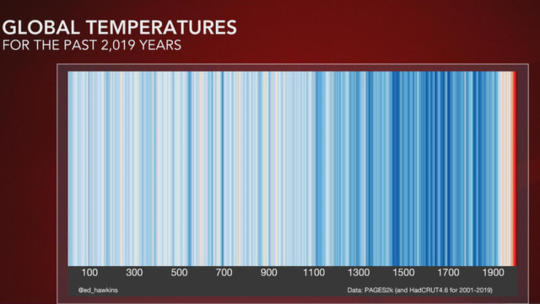
If you’re going to my school to study fashion, at least a couple of your classes are also on that floor, and you walk past this at least a few times a week, so even STEM students who are going into fields that are not centred around or related to biology or ecology hear about, learn about, or experience climate change issues.
And I am not saying that the amount of education or awareness being spread about climate change is a bad thing, we should not stop talking about climate change and the effects thereof; because this is a reality and if people are going to go into these kinds of fields they have to know what’s happening and what’s changing.
What I am saying however, is that this is having an effect on people’s mental health. The people who need to know this info the most, and are most likely going to have to do the most about this, are also the people being so bogged-down by the weight of it, the pain of it, the hopelessness, grief, anxiety, and fear of it, that it’s hurting them. And here’s the problem with having to get up 4-5 days a week and go to campus, get told the horrors of the world and uncertainty of our future, and then go home and continue to study, memorize, and understand the mechanisms for how the human race is destroying the planet and the conditions that made them and allowed them to thrive before making dinner, and then get up and study that all again on the weekends: it’s really really depressing.
It causes those phenomena I mentioned at the beginning, eco-grief and eco-anxiety, as well as a bunch of similar things, people being psychologically impacted by climate change. Psychologists have been observing and giving different names to these things, like the previously mentioned, as well as ecoguilt, solastalgia, biospheric concern, etc.
And let’s be real here for a moment, getting a degree in anything isn’t a smooth ride, it’s not easy and it’s rarely super fun. (Though it can have its moments) However, adding these kinds of psychological issues to the mix is going to increase the rate at which students give up on getting these degrees and try to pursue something that doesn’t make them feel the crushing weight of what feels like the “inevitable” demise of the human species all the time. So my theory is that this will decrease the number of STEM majors (primarily in ecology, geography, biology, and related subjects) who graduate and go on to work in their field.
But for those that push through and want this degree and want to do this work no matter the news they have to hear to get there, or those who just manage to withstand the mental and emotional pain cause by climate change long enough to finish a degree and/or get a job, the effects are still there. My theory is that this will make these people far “less happy” overall, just from regularly having to hear about, witness, study, report on, understand, or teach about climate change. (“Less happy” being pretty vague, I’m using it to generalize higher levels of feelings of loss or grief, anxiety, depression, emotional distress, etc.)
According to this article (https://www.frontiersin.org/articles/10.3389/fpsyt.2020.00074/full) “acute events” (meaning sudden, short, but extreme events of climate change) can cause reactions in people that “act through mechanisms similar to that of traumatic stress,” and people who actively study these events and issues are more likely to witness these events at all, will witness them more often, and will have a deeper understanding of the severity. So an event which the average person may perceive as sudden, short, but simply just sad and not very extreme; is likely to be far better understood by these professionals, who would then perceive it as far more extreme, resulting in it being an acute event, and causing that kind of psychological response.
In summary, it is emotionally and mentally painful to study the sciences during this time of anthropogenic climate change. Increased understanding on the severity of climate change events, witnessing them more frequently, and having to work with/study them regularly as part of one’s education or career, worsens the negative psychological impact these events can have on one’s mind. This makes students in the sciences more stressed and unhappy, which decreases the likelihood that those students will graduate and/or continue to pursue that subject/career. This also makes individuals who continue to pursue the subject/career less happy, and they may experience a higher frequency of symptoms that are similar to those of traumatic stress. We should not stop talking about climate change, we should not stop trying to learn about it and find ways to solve it, but if it continues to be as soul-crushing and psychologically painful to learn about, study, and witness, then the people who we need to study and solve the problem will only get fewer and farther between, which will only make it harder to fix the damage we’ve caused and prevent further damage in the future.
(Anyone here ever heard of a positive feedback loop? Sorry, bad joke, too soon.)
To finish this off I’d just like to say that if you know a climatologist, ecologist, biologist, botanist, meteorologist, etc.:
A) give them a cookie and a hug (as long as they’re comfortable, they deserve it)
B) please don’t ask them to recount the climate change events they’ve witnessed or study regularly, especially not in casual conversation, unless they express interest in sharing. Don’t just bring it up at the family reunion and smiling and staring at them while you wait for them to talk, as they panic internally, trying to think of a way to make this not fill every listener with dread.
C) if you do want to ask them about anything about climate change, ask if they know a way you can help. Volunteering groups, projects, petitions, good papers and articles to share online, simple everyday practices they could tell you about or advise you on how to do right, like using reusable shopping bags and bringing a cutlery kit and a travel cup wherever you go, these are all things that they might know more about or be more aware of than you, and they’re all good things! This will also help to uplift that person, seeing that what they do is encouraging at least individual people to make good choices and good change. Because fighting with companies, politicians, and fighting for grants to get enough money for research and even just general operation, is so annoying and disheartening a lot of the time, and deals with a lot of frustrating bureaucratic processes. So not only are you helping the environment, you’re giving that person hope, hope that maybe this fight isn’t all negotiating with greedy CEOs and uncaring politicians like you’re talking to a brick wall. No, this fight can also be people just choosing to do the right thing.
Sorry for such a long post, just got my mind ticking as I was doing some reading-up on current events, and something in there opened the floodgates in my brain, cause I’ve been thinking about this for a while. I just couldn’t get my thoughts on it quite right before though, and today something just clicked.
#climate change#anthropogenic global warming#anthropogenic climate change#global warming#climate emergency#climate activism#climate crisis#climatestrike#science#stem#stem student#climatology#ecology#biology#meteorology#ecosystem#geography#psychology#eco-grief#eco-anxiety#eco anxiety#ecological grief#solastalgia#university#college#post secondary#education#study#research
4 notes
·
View notes
Text
Okay, what the hell, let's try it again.
Is there anyone here on this hellsite who knows anything about climate, planets or/and axial tilt?
I built a planet with a 45° axial tilt and I kind of figured it out, but I need some confrontation with someone who knows what's up.
If there's someone, please test me, thanks!
1 note
·
View note
Text
thinkin abt wind barbs…

creatures to me
1 note
·
View note